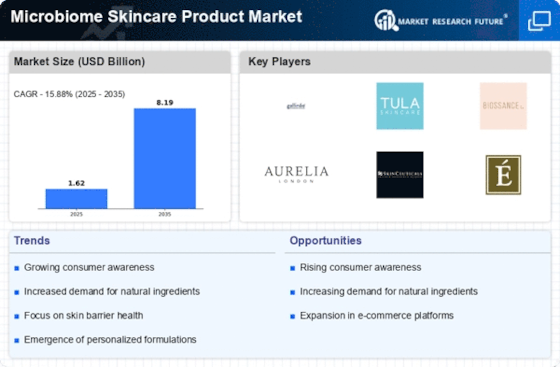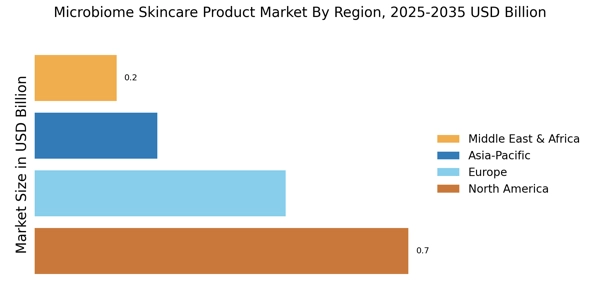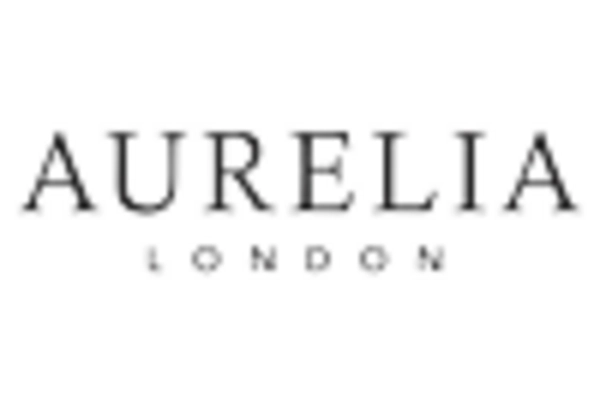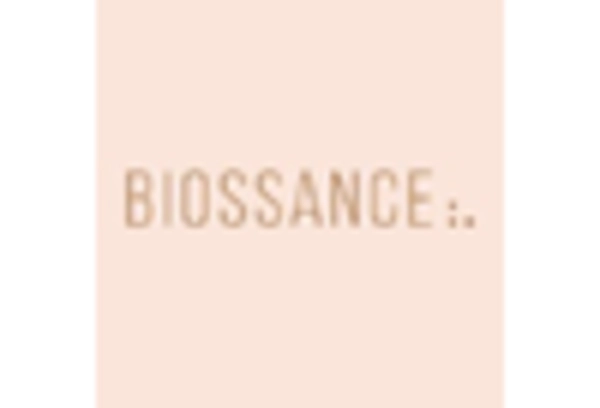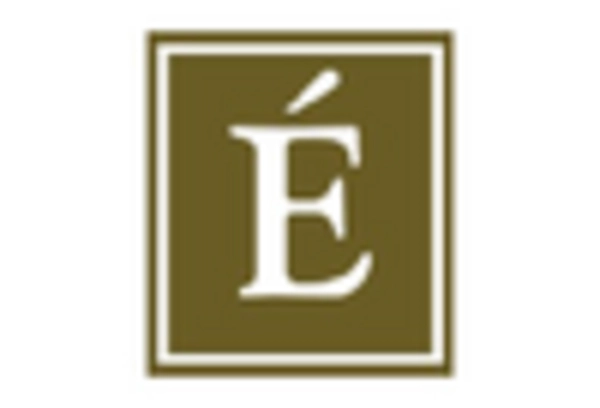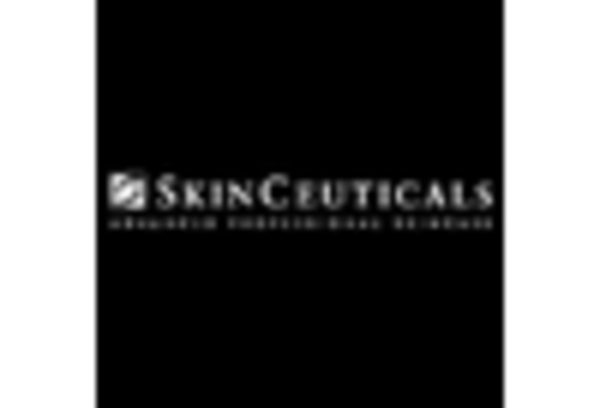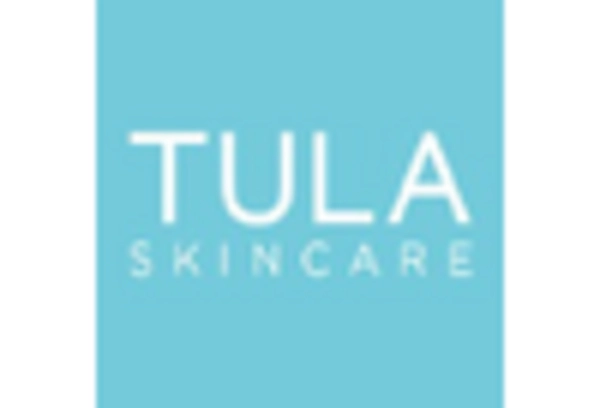Shift Towards Clean Beauty
The clean beauty movement is significantly influencing the Microbiome Skincare Product Market, as consumers increasingly prioritize transparency and safety in their skincare choices. This shift is characterized by a demand for products free from harmful chemicals, synthetic fragrances, and artificial preservatives. Brands that align with clean beauty principles are gaining a competitive edge, as consumers seek out microbiome-friendly options that promote skin health without compromising safety. Market data reveals that the clean beauty segment is expected to grow by over 12% in the coming years, with microbiome skincare products at the forefront of this trend. This growing preference for clean formulations is reshaping the landscape of the Microbiome Skincare Product Market, encouraging brands to adopt more responsible practices and ingredient sourcing.
Evolving Regulatory Landscape
The evolving regulatory landscape surrounding skincare products is having a profound impact on the Microbiome Skincare Product Market. As regulatory bodies increasingly scrutinize product formulations and claims, brands are compelled to ensure compliance with safety and efficacy standards. This shift is fostering a more responsible approach to product development, as companies invest in clinical studies and transparency to substantiate their claims. The regulatory environment is expected to tighten further, with new guidelines anticipated to emerge in the coming years. This evolution may lead to a consolidation of brands that prioritize compliance and quality, potentially reshaping market dynamics. As a result, the Microbiome Skincare Product Market is likely to witness a shift towards more scientifically-backed products, enhancing consumer trust and confidence.
Increasing Consumer Awareness
The Microbiome Skincare Product Market is experiencing a surge in consumer awareness regarding skin health and the role of the microbiome. As individuals become more informed about the skin's ecosystem, they are increasingly seeking products that support and enhance their skin's natural microbiota. This trend is reflected in the growing demand for microbiome-friendly formulations, which are perceived as safer and more effective. Market data indicates that the microbiome skincare segment is projected to grow at a compound annual growth rate of approximately 10% over the next five years, driven by this heightened awareness. Consumers are now more inclined to scrutinize ingredient lists, favoring products that promote skin balance and overall health, thereby propelling the Microbiome Skincare Product Market forward.
Innovation in Product Development
Innovation plays a pivotal role in the Microbiome Skincare Product Market, as brands strive to differentiate themselves in a competitive landscape. Companies are investing in research and development to create novel formulations that harness the benefits of probiotics, prebiotics, and postbiotics. This focus on innovation is not only enhancing product efficacy but also expanding the range of offerings available to consumers. For instance, the introduction of microbiome-targeted serums and moisturizers has gained traction, appealing to a diverse consumer base. Market analysis suggests that innovative product launches are likely to account for a significant portion of the industry's growth, with an estimated increase in new product introductions by 15% annually. This trend underscores the importance of continuous innovation in maintaining relevance within the Microbiome Skincare Product Market.
Rising Interest in Holistic Wellness
The Microbiome Skincare Product Market is benefiting from a broader trend towards holistic wellness, where consumers are increasingly recognizing the interconnectedness of skin health and overall well-being. This paradigm shift is leading to a greater emphasis on products that not only address skin concerns but also promote a balanced microbiome. As consumers seek comprehensive solutions for their skincare needs, brands are responding by developing products that incorporate holistic principles, such as stress reduction and nutrition. Industry expert's suggest that the holistic wellness trend is likely to drive a 20% increase in demand for microbiome skincare products over the next few years, as consumers gravitate towards solutions that align with their lifestyle choices. This growing interest in holistic approaches is reshaping the Microbiome Skincare Product Market.


